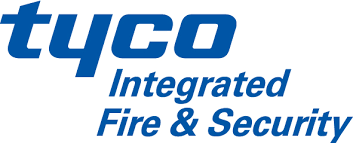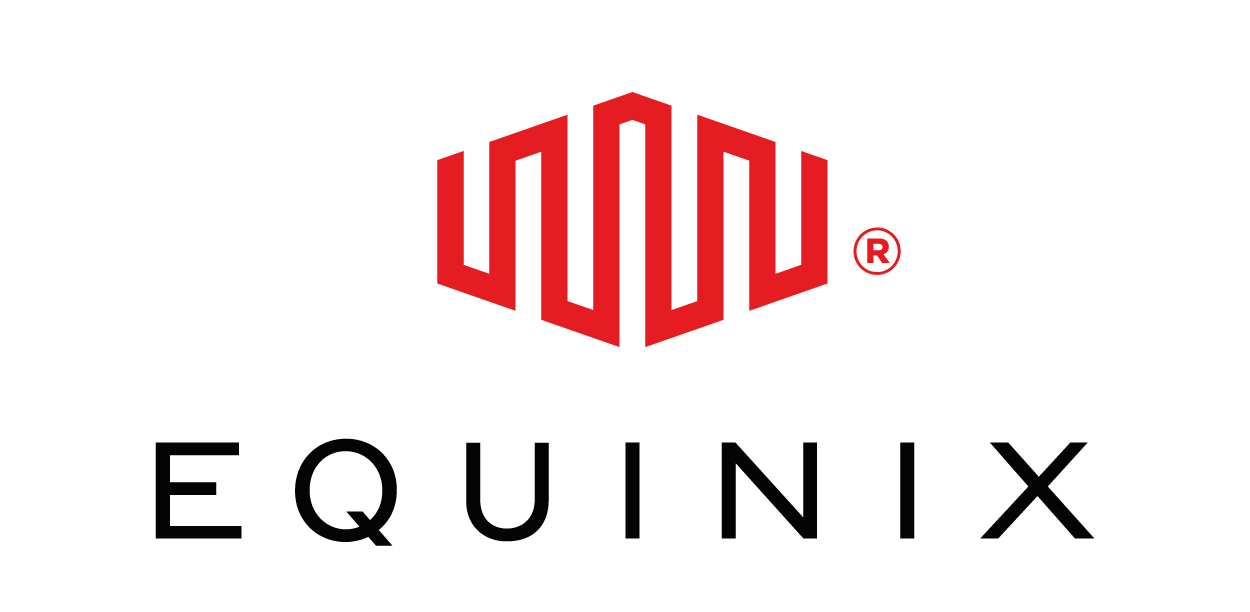To earn your official CISM certification from ISACA, you will need to study this training course and achieve a passing mark for the CISM exam.
Certified Information Security Manager (CISM)
-
Price
£99.00 including VAT (was £395.00)
Save £296.00
Offer ends 30 April 2024 - Course Type Online Course
- Course Duration 13 Hours
- Course Access 12 Months
- Awarded By ISACA
- Student Discount Card All students enrolled on this course are eligible to apply for a TOTUM Pro card
-
Deal Of The Day
Get an EXTRA 20% off with code MTA20
The demand for skilled information security management professionals is on the rise, and the CISM certification is the globally accepted standard of achievement in this area. CISMs understand the business. They know how to manage and adapt technology to their enterprise and industry.
CISM Certification:
- Demonstrates your understanding of the relationship between an information security program and broader business goals and objectives
- Distinguishes you as having not only information security expertise, but also knowledge and experience in the development and management of an information security program
- Puts you in an elite peer network
- Is considered essential to ongoing education, career progression and value delivery to enterprises.
My Training Academy's CISM course is designed to help learners to pass the ISACA CISM exam.
What's included in this CISM Online Course?
- 12 months unlimited access.
- Online video tutorials created by expert instructors.
- Practice quizzes after each module.
- Mock exam at the end of each course.
- Flashcard and educational games.
- MTA Course completion certificate.
To apply for the CISM certification you must have a minimum of five years of professional information systems management experience. If you do not have this experience, you can complete the course, pass your exam and gain the experience later, as long as it is achieved within a period of five years.
The CISM course has been designed to give you real-world knowledge that you can put to use from day one. It's highly flexible, so you can set your own timetable and study at your own pace.
Learn with confidence
We’re so certain that you’ll get great value from our CISM course that we offer a 14 Day 100% Money Back Guarantee.
Our students frequently recommend our courses to their friends, family and colleagues, so it’s vitally important to us that you are 100% satisfied with the service you receive from My Training Academy.
If you’re not entirely satisfied, then you will receive a full refund.
Click the “Add to Basket” button to book your course today.
Bulk discounts
Bulk discounts are available on purchases of 10 or more courses.
If you wish to discuss a large individual order for this course, and/or would like to be invoiced in advance, please call our sales team on 0808 175 1269 to make an enquiry.
To prepare you for your exam, we provide interactive quizzes after each module and a mock exam at the end of your course to ensure you’re fully prepared for the real thing. Once you’ve passed with at least 85%, you’ll be ready to book your exam as a private candidate. To make life easier, we can help you find an appropriate exam centre and give you all the information you need to secure your place.
Please note that the CISM exam fees aren’t included in the course price. To find the latest exam prices, visit:
Once you’re fully prepared and ready to sit your exam, all you’ll have to do is register with ISACA, purchase your exam and sit your exam either online or at a test centre near you. Online testing offers you the ease and convenience to test for your certification from any quiet, distraction-free and secure location at any time.
Got a question about exams? Contact our course advisors by email or by phone on 0808 175 1269. We're happy to help!
Our training works on all devices including Mobile phones, IPad’s, Android tablets, Macs and PC’s.
For the best viewing experience on our state-of-the-art eLearning platform we recommend an internet connection of 10Mbps or better. Please also use Google Chrome or Mozilla Firefox as your browser with Adobe Flash Player.
CISM is globally recognised as one of the most prestigious certifications for Information Security Managers. CISM-certified professionals are in high demand and the certification can help individuals to progress in their careers and earn higher salaries.
Learners will have access to the CISM course for up to 12 months from the date of joining. There is no time limit to complete the course during this period.
We've put together a list of relevant job titles you can apply for after achieving the CISM certification (note that some careers may require further study, training and/or work experience):
- IT Risk Manager
- Information Security Manager
- Network Security Specialist
- IT Security Officer
- Cyber Security Manager
- IT Security Incident Manager
Career Advice
Once you enrol on a course with us, you'll have full access to our recruitment package for a wide range of information and advice - including:
- How to put together a killer CV, Covering Letters and Thank You email's.
- How to gain relevant work experience.
- How to prepare for interviews.
- How to understand Job adverts.
- How to choose the right recruitment agency.
- How to look for work on LinkedIn.
- Information on dealing with redundancy.
Our careers advice section is available for you to see now. For more information about our career advice services, contact us on 0808 175 1269 to speak with one of our friendly course advisors today.
This course covers the following modules:
Domain 1: Information Security Governance
- CISM Introduction
- Information Security
- Business Goals, Objectives, and Functions
- Business Goals and Information Security
- Information Security Threats
- Information Security Management
- Identity Management
- Data Protection
- Network Security
- Personnel Security
- Facility Security
- Security Compliance and Standards
- Information Security Strategy
- Inputs and Outputs of the Informtion Security Strategy
- Processes in an Information Security Strategy
- People in an Information Security Strategy
- Technologies in an Indormation Security Strategy
- Logical and Physical Information Security Strategy Architectures
- Information Security and Business Functions
- Information Security Policies and Enterprise Objectives
- International Standards for the Security Management
- ISO/IEC 27000 Standards
- International Info Government Standards
- Information Security Government Standards in the United States
- Methods of Coordinating Information Security Activites
- How to Develop an Information Security Strategy
- Information Security Governance
- Role of the Security in Governance
- Scope of Information Security Governance
- Charter of Information Security Governance
- Information Security Governance and Enterprise Governance
- How to Align Information Security Strategy with Corporate Governance
- Regulatory Requirements and Information Security
- Business Impact of Regulatory Requirements
- Liability Management
- Liability Management Strategies
- How to Identify Legal and Regulatory Requirements
- Business Case Development
- Budgetary Reporting Methods
- Budgetary Planning Strategy
- How to Justify Investment in Info Security
- Organizational Drivers
- Impact of Drivers on Info Security
- Third Party Relationships
- How to Identify Drivers Affecting the Organization
- Purpose of Obtaining Commitment to Info Security
- Methods for Obtaining Commitment
- ISSG
- ISSG Roles and Responsibilities
- ISSG Operation
- How to Obtain Senior Management's Commitment to Info Security
- Info Security Management Roles and Responsibilities
- How to Define Roles and Responsibilities for Info Security
- The Need for Reporting and Communicating
- Methods for Reporting in an Organization
- Methods of Communication in an Organization
- How to Establish Reporting and Communicating Channels
Domain 2: Risk Management
- Risk
- Risk Assessment
- Info Threat Types
- Info Vulnerabilities
- Common Points of Exposure
- Info Security Controls
- Types of Info Security Controls
- Common Info Security Countermeasures
- Overview of the Risk Assessment Process
- Factors Used in Risk Assessment and Analysis
- Risk Assessment Methodologies
- Quantitative Risk Assessment - Part 1
- Quantitative Risk Assessment - Part 2
- Qualitative Risk Assessment
- Hybrid Risk Assessment
- Best Practices for Info Security Management
- Gap Analysis
- How to Implement an Info Risk Assessment Process
- Info Classification Schemas
- Components of Info Classification Schemas
- Info Ownership Schemas
- Components of Info Ownership Schemas
- Info Resource Valuation
- Valuation Methodologies
- How to Determine Info Asset Classification and Ownership
- Baseline Modeling
- Control Requirements
- Baseline Modeling and Risk Based Assessment of Control Requirements
- How to Conduct Ongoing Threat and Vulnerability Evaluations
- BIA's
- BIA Methods
- Factors for Determining Info Resource Sensitivity and Critically
- Impact of Adverse Events
- How to Conduct Periodic BIA's
- Methods for Measuring Effectiveness of Controls and Countermeasures
- Risk Mitigation
- Risk Mitigation Strategies
- Effect of Implementing Risk Mitigation Strategies
- Acceptable Levels of Risk
- Cost Benefit Analysis
- How to Identify and Evaluate Risk Mitigation Strategies
- Life Cycle Processes
- Life Cycle-Based Risk Management
- Risk Management Life Cycle
- Business Life Cycle Processes Affected by Risk Management
- Life Cycled-Based Risk Management Principles and Practices
- How to Integrate Risk Management Into Business Life Cycle Processes
- Significant Changes
- Risk Management Process
- Risk Reporting Methods
- Components of Risk Reports
- How to Report Changes in Info Risk
Domain 3: Information Security Program
- Info Security Strategies
- Common Info Security Strategies
- Info Security Implementation Plans
- Conversation of Strategies Into Implementation Plans
- Info Security Programs
- Info Security Program Maintenance
- Methods for Maintaining an Info Security Program
- Succession Planning
- Allocation of Jobs
- Program Documentation
- How to Develop Plans to Implement an Info Security Strategy
- Security Technologies and Controls
- Cryptographic Techniques
- Symmetric Cryptography
- Public Key Cryptography
- Hashes
- Access Control
- Access Control Categories
- Physical Access Controls
- Technical Access Controls
- Administrative Access Controls
- Monitoring Tools
- IDS's
- Anti-Virus Systems
- Policy-Compliance Systems
- Common Activities Required in Info Security Programs
- Prerequisites for Implementing the Program
- Implementation Plan Management
- Types of Security Controls
- Info Security Controls Development
- How to Specify info Security Program Activities
- Business Assurance Function
- Common Business Assurance Functions
- Methods for Aligning info Security Programs with Business Assurance Functions
- How to Coordinate Info Security Programs with Business Assurance Functions
- SLA's
- Internal Resources
- External Resources
- Services Provided by External Resources - Part 1
- Services Provided by External Resources - Part 2
- Skills Commonly Required for Info Security Program Implementation
- Dentification of Resources and Skills Required for a Particular Implementation
- Resource Acquisition Methods
- Skills Acquisition Methods
- How to Identify Resources Needed for Info Security Program Implementation
- Info Security Architectures
- The SABSA Model for Security Architecture
- Deployment Considerations
- Deployment of Info Security Architectures
- How to Develop Info Security Architecture
- Info Security Policies
- Components of Info Security Policies
- Info Security Policies and the Info Security Strategy
- Info Security Policies and Enterprise Business Objectives
- Info Security Policy Development Factors
- Methods for Communicating Info Security Policies
- Info Security Policy Maintenance
- How to Develop Info Security Policies
- Info Security Awareness Program, Training Programs, and Education Programs
- Security Awareness, Training, and Education Gap Analysis
- Methods for Closing the Security Awareness, Training, and Education Gaps
- Security-Based Cultures and Behaviors
- Methods for Establishing and Maintaining a Security-Based Culture in the Enterprise
- How to Develop Info Security Awareness, Training, and Education Programs
- Supporting Documentation for Info Security Policies
- Standards, Procedures, Guidelines, and Baselines
- Codes of Conduct
- NDA's
- Methods for Developing Supporting Documentation
- Methods for Implementing Supporting Documentation and for Communicating Supporting Documentation
- Methods for Maintaining Supporting Documentation
- C and A
- C and A Programs
- How to Develop Supporting Documentation for Info Security Policies
Domain 4: Information Security Program Implementation
- Enterprise Business Objectives
- Integrating Enterprise Business Objectives & Info Security Policies
- Organizational Processes
- Change Control
- Merges & Acquisitions
- Organizational Processes & Info Security Policies
- Methods for Integrating Info Security Policies & Organizational Processes
- Life Cycle Methodologies
- Types of Life Cycle Methodologies
- How to Integrate Info Security Requirements Into Organizational Processes
- Types of Contracts Affected by Info Security Programs
- Joint Ventures
- Outsourced Provides & Info Security
- Business Partners & Info Security
- Customers & Info Security
- Third Party & Info Security
- Risk Management
- Risk Management Methods & Techniques for Third Parties
- SLA's & Info Security
- Contracts & Info Security
- Due Diligence & Info Security
- Suppliers & Info Security
- Subcontractors & Info Security
- How to Integrate Info Security Controls Into Contracts
- Info Security Metrics
- Types of Metrics Commonly Used for Info Security
- Metric Design, Development & Implementation
- Goals of Evaluating Info Security Controls
- Methods of Evaluating Info Security Controls
- Vulnerability Testing
- Types of Vulnerability Testing
- Effects of Vulnerability Assessment & Testing
- Vulnerability Correction
- Commercial Assessment Tools
- Goals of Tracking Info Security Awareness, Training, & Education Programs
- Methods for Tracking Info Security Awareness, Training, & Education Programs
- Evaluation of Training Effectiveness & Relevance
- How to Create Info Security Program Evaluation Metrics
Domain 5: Information Security Program Management
- Management Metrics
- Types of Management Metrics
- Data Collection
- Periodic Reviews
- Monitoring Approaches
- KPI's
- Types of Measurements
- Other Measurements
- Info Security Reviews
Domain 6: Incident Management and Response
- Management Metrics
- Types of Management Metrics
- Data Collection
- Periodic Reviews
- Monitoring Approaches
- KPI's
- Types of Measurements
- Other Measurements
- Info Security Reviews
- The Role of Assurance Providers
- Comparing Internal and External Assurance Providers
- Line Management Technique
- Budgeting
- Staff Management
- Facilities
- How to Manage Info Security Program Resources
- Security Policies
- Security Policy Components
- Implementation of Info Security Policies
- Administrative Processes and Procedures
- Access Control Types
- ACM
- Access Security Policy Principles
- Identity Management and Compliance
- Authentication Factors
- Remote Access
- User Registration
- Procurement
- How to Enforce Policy and Standards Compliance
- Types of Third Party Relationships
- Methods for Managing Info Security Regarding Third Parties
- Security Service Providers
- Third Party Contract Provisions
- Methods to Define Security Requirements in SLA's, Security Provisions and SLA's, and Methods to Monitor Security
- How to Enforce Contractual Info Security Controls
- SDLC
- Code Development
- Common Techniques for Security Enforcement
- How to Enforce Info Security During Systems Development
- Maintenance
- Methods of Monitoring Security Activities
- Impact of Change and Configuration Management Activities
- How to Maintain Info Security Within an Organization
- Due Diligence Activities
- Types of Due Diligence Activities
- Reviews of Info Access
- Standards of Managing and Controlling Info Access
- How to Provide Info Security Advice and Guidance
- Info Security Awareness
- Types of Info Security Stakeholders
- Methods of Stakeholder Education
- Security Stakeholder Education Process
- How to Provide Info Security Awareness and Training
- Methods of Testing the Effectiveness of Info Security Control
- The Penetration Testing Process
- Types of Penetration Testing
- Password Cracking
- Social Engineering Attacks
- Social Engineering Types
- External Vulnerability Reporting Sources
- Regulatory Reporting Requirements
- Internal Reporting Requirements
- How to Analyze the Effectiveness of Info Security Controls
- Noncompliance Issues
- Security Baselines
- Events Affecting the Security Baseline
- Info Security Problem Management Process
- How to Resolve Noncompliance Issues
-

EXPERT INSTRUCTOR-LED TRAINING
We only uses the industry’s finest instructors to develop our courses. They have a minimum of 15 years real-world experience and are subject matter experts in their fields. Unlike a live class, you can fast-forward, repeat or rewind all your lectures. This creates a personal learning experience and gives you all the benefit of hands-on training with the flexibility of doing it around your schedule 24/7.
-

QUIZZES & EXAM SIMULATORS
Our custom practice exams prepare you for your exams differently and more effectively than the traditional exam preps on the market. You will have practice quizzes after each module to ensure you are confident on the topic you have completed before proceeding. This will allow you to gauge your effectiveness before moving to the next module in your course. Our Courses also include practice exams designed to replicate and mirror the environment in the testing centre. These exams are on average 100 questions to ensure you are 100% prepared before taking your certification exam.
-

VISUAL DEMONSTRATIONS & MULTIMEDIA PRESENTATIONS
Our courseware includes instructor-led demonstrations and visual presentations that allow students to develop their skills based on real world scenarios explained by the instructor. Our Courseware always focuses on real world scenarios and skill-set development.
-

NAVIGATION & CONTROLS
Our self-paced training programs are designed in a modular fashion to allow you the flexibility to work with expert level instruction anytime 24/7. All courses are arranged in defined sections with navigation controls allowing you to control the pace of your training. This allows students to learn at their own pace around their schedule.
-

SOCIAL LEARNING & NETWORKING
We Have designed a world class Learning Management System (LMS). This system allows you to interact and collaborate with other students, form study groups, engage in discussions in our NOW@ Forums, rate and “like” different courses and stay up to date with all the latest industry knowledge through our forums, student contributions and announcement features. This LMS is unmatched in the industry and makes learning fun and enjoyable.
-

FLASH CARDS & EDUCATIONAL GAMES
Our Courseware knows that education is not a one size fits all approach. Students learn in different ways through different tools. That is why we provide Flash Cards and Education Games throughout our courses. This will allow you to train in ways that keep you engaged and focused. Each course will have dozens of Flash Cards so you can sharpen your skill-sets throughout your training as well as educational games designed to make sure your retention level of the materials is extremely high.
-

12 MONTHS UNLIMITED ACCESS
Each student will have 12 months unlimited access to allow you to have access to the training anytime 24/7.
For purchases of 1 to 9 user enrolments select the number of users you require and add the course to your shopping basket by selecting Add to Basket. You will then be able to make payment using most credit and debit cards or a PayPal account. Once payment is confirmed, we’ll process your order and email your course login instructions.
For a licence for 10 or more user enrolments, discounts, or if you would like to pay by BACs transfer or by invoice, please contact us on 0808 175 1269 or email sales@mytrainingacademy.org.uk.
Purchase Order Payments: To pay and enrol for courses using a purchase order (PO), please email your PO details to sales@mytrainingacademy.org.uk.
All students enrolled on this course are eligible to apply for a TOTUM PRO Card, which offers discounts in a wide range of shops and websites, helping you get money off food, holidays and flights, clothes, make-up gym memberships and much more.
TOTUM PRO card is aimed at professional learners, giving you access to exclusive discounts. Explore the full list of offers.
We make it our absolute mission to give you the training you need and the service you deserve. Hear what our students say about us...

By purchasing a course on My Training Academy, you become a part of our community and are eligible to sign up for TOTUM Pro, the student discount card that provides a host of benefits. Join our community today and start saving on your favourite brands.







Save £296.00

Privacy
Protected
Secure
Checkout















